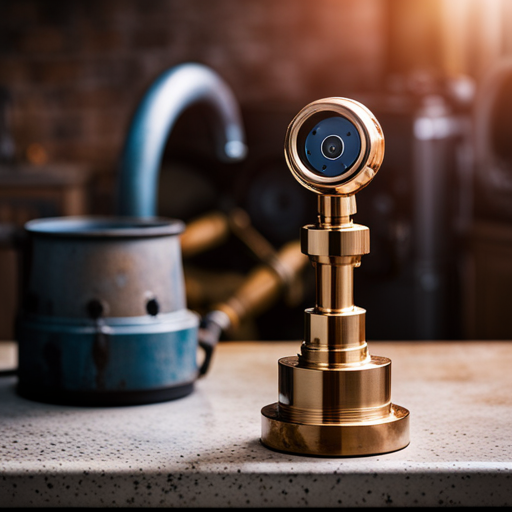Do you ever notice stains on your clothes or dishes even after washing them? Or do you struggle with dry, itchy skin and hair fall? If so, the culprit may be hard water.
Hard water is a common issue that affects many households around the world, and it can cause a range of problems that can be frustrating to deal with. The high levels of calcium and magnesium ions in hard water can lead to mineral buildup in pipes and appliances, reducing their efficiency and lifespan.
Additionally, hard water can affect the performance of household products such as soap and detergent, making it harder to clean and leaving behind residue. In this article, we will explore the causes and effects of hard water, as well as ways to identify and fix the problem so that you can enjoy clean, healthy water in your home.
Key Takeaways
– Hard water contains high levels of calcium and magnesium ions and can cause household issues like stains, hair fall, and acne.
– Soft water is not necessarily better than hard water and can have its own drawbacks.
– The type of water depends on the site of the water supply, with areas with aquifers and sedimentary rocks having hard water.
– Different treatments or tools like ion exchange columns can be used for permanent hard water.
Water Classification
You may be wondering how water is classified in terms of hardness, but it all comes down to the level of calcium carbonate present in the water supply. The more calcium carbonate, the harder the water.
Water sources like aquifers and sedimentary rocks have high mineral concentration, which makes them more likely to produce hard water. Hard water is a global issue, impacting many countries around the world.
Latin American countries suffer from water shortages and lack clean water, while Asian countries like China, India, and Indonesia have higher levels of hard water. The type of water depends on the site of the water supply and the geography of the area.
Sedimentary rocks, which are made of particles like sand, debris, and clay with high mineral concentration, are remains of sea creatures that pass on ions to water. Understanding the classification of water hardness is the first step in identifying and addressing any household issues caused by hard water.
Geography and Location
If you live in London or surrounding areas, it’s likely that the water supply is classified as hard due to the presence of sedimentary rocks. These rocks are composed of particles like sand, debris, and clay that contain high mineral concentrations. As a result, the water supply in these areas contains high levels of calcium and magnesium ions, which contribute to the classification of hard water.
However, London is not alone in experiencing hard water. In fact, many areas around the world have hard water due to the type of water supply sources present. For example, many countries in Asia, such as China, India, and Indonesia, have higher hard water levels. The United States has both hard and soft water in different states, while France has more hard water in its northern regions compared to the rest of the country.
This indicates that hard water is a global trend that affects many households worldwide.
Household Effects and Solutions
Dealing with the effects of hard water can be frustrating, but there are solutions available to improve the quality of your water. One of the most common issues caused by hard water is excessive buildup and stains in your home. This can be prevented by regularly cleaning surfaces with a solution of vinegar and water, or by installing a water softener to remove the excess minerals from your water.
Another solution to improve the quality of your water is through water filtration. Different types of filters can be installed to remove impurities and improve taste, odor, and clarity. Reverse osmosis and carbon filters are two popular options that can effectively remove minerals and other contaminants from your water.
By using these solutions, you can enjoy cleaner, softer water that is gentler on your skin, hair, and household appliances.
Conclusion
So, now that you know more about the effects of hard water in your household, it’s time to take action.
You can start by identifying whether your water is hard or not using a simple test kit. If it’s hard, consider installing a water softener or using a water filter to reduce the minerals present in your water. This can help improve the taste of your water and prevent stains on your clothing and appliances.
Additionally, there are several ways to reduce the effects of hard water on your hair and skin. You can use a clarifying shampoo to remove build-up and a moisturizer to combat dryness.
Overall, it’s important to take the necessary steps to address the issue of hard water in your home to ensure a healthier and more comfortable living environment.
